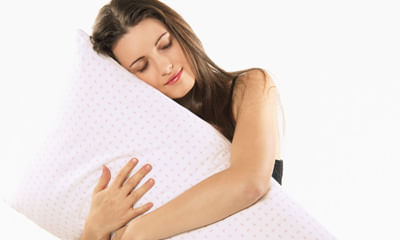What Is Sleep Apnea ?
What is sleep Apnea?
Sleep apnea is a serious sleep disorder that occurs when a person's breathing is interrupted during sleep. People with untreated sleep apnea stop breathing repeatedly during their sleep, sometimes hundreds of times. This means the brain -- and the rest of the body -- may not get enough oxygen.
Types of Apnea Sleep:
There are two types of sleep apnea:
-Obstructive sleep apnea: The more common of the two forms of apnea, it is caused by a blockage of the airway, usually when the soft tissue in the back of the throat collapses during sleep.
-Central sleep apnea: Unlike OSA, the airway is not blocked, but the brain fails to signal the muscles to breathe, due to instability in the respiratory control center.
Major Causes for sleep apnea:
-Muscular changes: When people sleep, the muscles that keep the airway open relax, along with the tongue, causing the airway to narrow. Normally, this relaxation does not prevent the flow of air in and out of the lungs, but in sleep apnea, it can.
-Physical obstructions: Additional thickened tissue or excessive fat stores around the airway can restrict the airflow, and any air that squeezes past can cause the loud snoring typically associated with OSA.
-Brain function: In central sleep apnea (CSA), the neurological controls for breathing are faulty, causing the control and rhythm of breathing to malfunction. CSA is usually associated with an underlying medical condition, such as a stroke or heart failure, recent ascent to high altitude, or the use of pain relief medication.
When the airway becomes completely blocked, the snoring stops and there is no breathing for a 10-20 second time period or until the brain senses the apnea and signals the muscles to tighten, returning the airflow. This pause in breathing is known as apnea.
Although this process continues hundreds of times throughout the night, the individual experiencing the apnea is not conscious of the problem.
Symptoms:
*Loud snoring
*Episodes in which you stop breathing during sleep — which would be reported by another person
*Gasping for air during sleep
*Awakening with a dry mouth
*Morning headache
*Difficulty staying asleep (insomnia)
*Excessive daytime sleepiness (hypersomnia)
*Difficulty paying attention while awake
*Irritability
Diagnosis:
Sleep apnea is diagnosed with a sleep study (nocturnal polysomnography) carried out at an overnight sleep laboratory. This records brain waves, eye and leg movements, oxygen levels, airflow, and heart rhythm during sleep. A physician who specializes in sleep disorders interprets the test.
For some individuals, Home Sleep Apnea Testing (HSAT) can be done in place of the laboratory study. The number of apnea episodes that occur every hour determines sleep apnea severity:
Normal - 0-5 apnea episodes per hour.
Mild sleep apnea - 5-15 apnea episodes per hour.
Moderate sleep apnea - 16-30 apnea episodes per hour.
Severe sleep apnea - 31+ episodes per hour.
Role of homeopathy in sleep apnea:
Homeopathic Treatment of Sleep Apnea-
Homeopathy is one of the most popular holistic systems of medicine. The selection of remedy is based upon the theory of individualization and symptoms similarity by using holistic approach. This is the only way through which a state of complete health can be regained by removing all the sign and symptoms from which the patient is suffering.
The aim of homeopathy is not only to treat sleep apnoea but to address its underlying cause and individual susceptibility. As far as therapeutic medication is concerned, several well-proved medicines are available for sleep apnoea treatment that can be selected on the basis of cause, sensation and modalities of the complaints. For individualized remedy selection and treatment, the patient should consult a qualified homeopathic doctor in person.



+1.svg)
